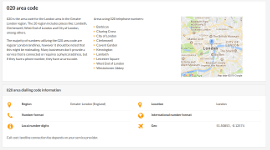 UK telecommunication industry is overseen by The Office of Communications, which is a governmental body responsible for monitoring compliance and competition for telecommunication, broadcast and postal industries.
UK telecommunication industry is overseen by The Office of Communications, which is a governmental body responsible for monitoring compliance and competition for telecommunication, broadcast and postal industries.
UK telecommunication industry is overseen by The Office of Communications, which is a governmental body responsible for monitoring compliance and competition for telecommunication, broadcast and postal industries. It reported that as of 2016 94% of UK residents owned a mobile phone. There were over 92 million active mobile subscriptions as opposed to 33 million landlines. Nevertheless 2016 recorded a 1.3% increase in the number of landlines, mostly due to new residential and business real estate developments.
Telecommunication industry has a fascinating history dating back to 1876, when Scottish inventor Alexander Graham Bell made the first telephone conversation with his assistant in a next door room: “Mr Watson, come here – I want to see you”. These words mark the starting point of a global revolution. In 1881 National Telephone Company was created to oversee localised landline services across the country and maintained a monopoly until the 1980s. As a result of Bell's invention in 1891 telephone connection has been established between London and Paris. Back then it was used mostly by commercial organisations, journalists and stock exchange traders. The years after The World War I popularised telephone services, which were gradually becoming more available for ordinary citizens. The next milestone in the telephone industry came with the invention of the first mobile phone in 1983 known as the Motorola DynaTAC 8000X that cost £2,639 (nearly £8,000 today). It required 10 hours of charging and allowed for just 30 minutes of talk-time.
Telephone connections would not be possible without an organised domestic and international trunk infrastructure and effective distribution of area codes. Originally, area codes were used to identify the geographic location of a landline. Currently, they are arbitrarily assigned to newly created landline and mobile services basing on a set of complex rules and regulations. There are hundreds of area codes covering the entire territory of the United Kingdom. It is simply impossible to know all of them by heart. That's why the developers behind UKareacode.co.uk decided to create an all-encompassing repository of knowledge that contains all necessary information about dialling codes and the areas that they cover. They have created a website that collects and organises information about area codes and presents it in the most user-friendly way possible. UKareacode.co.uk is divided into four sections representing four regions of the United Kingdom – England, Scotland, Northern Ireland and Wales. Each section contains an index of dialling codes and their areas of operation. Database records themselves are very informative – they accommodate a full list of towns and cities covered by a certain area code. There is also a table referencing domestic and international telephone number format, local number digits, geographic coordinates and call costs.
Area codes have always been a foundation of a well-organised telecommunication structure. Thanks to UKareacode.co.uk you now have a powerful resource that will help you validate the correctness of UK dialling codes quickly and effortlessly. You can use the platform on the go, as it is compatible with all modern portable devices. The use of the website is free of charge, which means that every Internet user worldwide can enjoy free unlimited access to all functionalities of the site without providing personal information or setting up an account.